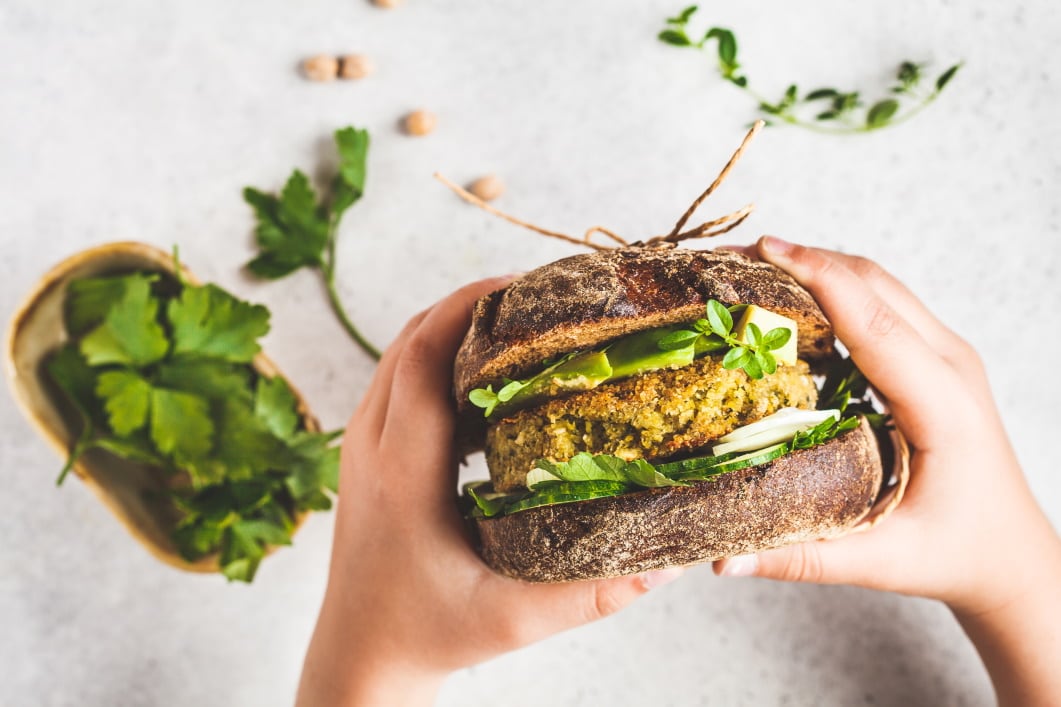The brand, owned by Verso Foods, believes that the food debate is ‘too heated’ for ‘big change' to happen.
It commissioned a survey to examine the meat and plant-based divide that was carried out by Bilendi Finlant in January 2021. The results showed almost two-thirds (64%) of Finns perceive the public discussion around food as strongly polarized. Over half (58%) would like people to be more tolerant towards different dietary choices. And, interestingly, vegetarians and meat-eaters alike report having felt judged for their food choices.
Beanit is concerned this atmosphere and the conflict-ridden public discourse around food could hinder the development of more sustainable eating habits.
“The polarized food discussion does not serve anyone. We were sad to learn that a quarter of the respondents are outright stressed because of the current discussion climate where only extreme opinions seem to get space. We believe it is our responsibility among all other actors in the food system to create a more favourable environment for eating habits to change,” explained Jukka Kajan, Head of Stakeholder Relations at Beanit.
Win over the ‘intenders’
Kajan told FoodNavigator that the ‘meat versus plant-based’ framework is counterproductive and does not promote the transition to a more sustainable food system. “A narrative based on 'us and them' very easily turns into a blame game, and an atmosphere of accusation is not ideal for change to happen. We claim that creating conflict and confrontation is a very short-sighted approach when increasing the appeal of plant-based foods.”
Indeed, he continued, a confrontational approach to meat consumption only serves to turn people off plant-based alternatives, limiting uptake of more plant-based or flexitarian diets.
“In our study, we could see a clear gap between people acknowledging the general need for change towards less meat and actually making the change themselves quite yet. In that gap, there are various barriers, of which some are clearly emotional, and identity based.
“Our interpretation is that a lot of the messaging around plant-based does not reflect people’s real emotions, and thus becomes distancing. If plant-based eating is to become mainstream and reach significant growth, winning over these 'intenders' is crucial.”
Verso Foods’ vision for environmental and health impact is based on the majority of people making small changes rather than a minority choosing plant-based only. Moving ‘step-by-step’ is a more ‘realistic approach’ to greener eating for many consumers, according to Beanit.
In short, plant-based advocates need to stop lecturing and start inspiring if they are going to win the hearts and minds of the majority, who will continue to incorporate meat in their diets.
“Lecturing can create cognitive dissonance as knowledge grows but the slowly changing habits remain. For too many, cognitive dissonance again may result in denial and defence instead of providing a boost for change,” Kajan told this publication.
‘Speak respectfully of meat’
In order to change the atmosphere, Beanit has launched a new initiative called ‘Meat Saturday’ where the brand ‘speaks quite respectfully of meat’.
The message is clear: if you like your meat, enjoy it once a week, for instance on Saturdays. The other days of the week are good to enjoy plant-based ingredients, the company explained.
“The consumption of meat has increased drastically over many decades and is now a daily staple for many – something it didn’t use to be. We suggest that meat should be more highly appreciated, the rather precious ingredient it is. What if we returned to seeing it as something for special occasions?” Kajan suggested.
The campaign was launched with full front-page ads in the biggest newspapers in Finland, with social and traditional media support. The newspaper advert included a campaign manifesto around the message that meat shouldn’t be taken for granted.
“Our message is controversial for a vegan brand, yet simple. We launched 'Meat Saturday' - the weekly occasion dedicated for enjoying good meat with a clean conscience and leaving the other six days of the week for plant-based food such as delicious fava beans,” Kajan explained.
For Beanit, the aim is to inspire more people to adopt flexitarian diets that are higher in plant-based products and lower in meat. The brand believes that this more inclusive approach will resonate with consumers and help defuse the sometimes hostile, sometimes preachy, tone currently dominating the plant-based movement.
“Beanit relies on being inspiring, approachable, and relatable for everyone. It’s been said that the most radical thing about us is that we are not very radical at all. Instead of blaming people for eating meat, we reminded them that you don’t need to give it up altogether in order to eat less of it.”
Flexitarian diets offer biggest impact opportunity
Supporting people who want to cut back on their meat consumption offers the biggest opportunity to grow the plant-based market and maximise environmental and population health impact, according to Beanit’s assessment.
According to the research, 44% of Finns want to eat more vegetarian foods, and 40% find it important to decrease meat consumption – so the willingness is there. However, Beanit believes the fear of being scrutinized for making vegetarian or vegan food choices may well explain part of the gap between consumer intention and action.
“We believe that creating a more allowing atmosphere helps in making a change in food habits, something we all know is incredibly difficult. We believe in allowing instead of forbidding and making small steps matter.
“Creating the understanding that plant-based products are not only for vegans, and they can co-exist with meat and dairy, is a step towards larger impact. Based on the feedback we have received these ideas clearly resonate with the large crowd.”
This is important to maximize the impact of plant-based products. Plant-based diets, in comparison to those that are rich in animal products, are regarded as more sustainable as they produce fewer greenhouse gas emissions and require less land and water resources. Research also links high meat consumption with a higher risk of diabetes, heart disease, and strokes. Conversely, the more fruits and vegetables we eat, the lower our risk for these diseases, and the lower our body mass index.
“Greater impact is achieved when a big crowd takes small steps, instead of a small group taking big leaps. If 80% of us cut down our meat consumption by 20%, it would be more efficient in terms of emission reduction and saved animal lives than if 10% gave up meat completely. From a health perspective, the answer is even more obvious. For public health the situation would remain unbearable if the majority would continue consuming unhealthy amounts of meat,” Kajan argued.
“When thinking of the potential impact we perceive that the flexitarian diet becoming mainstream is also a much more realistic scenario than for 10% of the population to go fully plant-based.
“The number of people making plant-based choices and considering their eating habits is important too. They are important messengers. The bigger they are in numbers, the more resonance they create all over society.”




